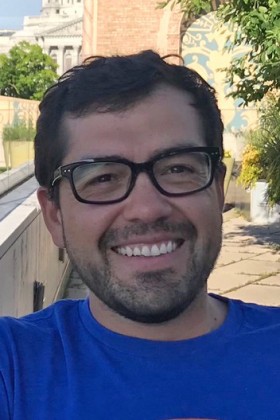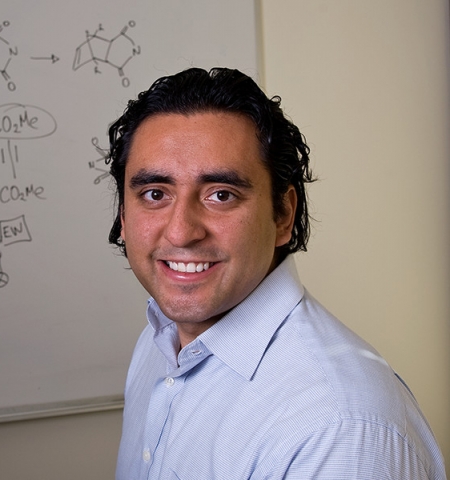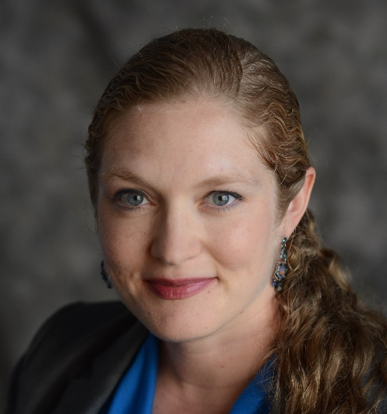Jeffrey Rimer
Associate Professor of Chemical Engineering
University of Houston
BIO: Prof. Rimer received B.S. degrees in Chemical Engineering and Chemistry from Washington University in St. Louis and Allegheny College, respectively. In 2006, he received his Ph.D. in Chemical Engineering from the University of Delaware. Prior to joining the Department of Chemical and Biomolecular Engineering at Houston in 2009, he spent two years as a postdoctoral fellow at New York University’s Molecular Design Institute within the Department of Chemistry. Jeff’s research in the area of crystal engineering focuses on the rational design of materials with specific applications in the synthesis of microporous catalysts and adsorbents, and the development of therapeutics to inhibit crystal formation in pathological diseases. His work has been featured in high impact journals such as Science and Nature, among others. Jeff has also received numerous awards, including a Welch Foundation fellowship, the ACS Doctoral New Investigator Award, and the NSF CAREER Award. Recently, he was selected for the 2016 Owens Corning Early Career Award by AIChE. He has also been the recipient of several research and teaching awards, including the Junior Faculty Research Excellence Award from the Cullen College of Engineering, the Excellence in Research and Scholarship and the Early Faculty Award for Mentoring Undergraduate Research from the University of Houston, and Teaching Excellence Awards at both the University and College level. Jeff serves as chair of the Southwest Catalysis Society, vice chair of the International Zeolite Association Synthesis Commission, chair elect for the Gordon Research Conference on Crystal Growth and Assembly, and he is an advisory board member for the journal Reaction Chemistry & Engineering.
TITLE: Identifying New Paradigms in Crystal Engineering for Energy and Biomedical Applications
ABSTRACT: Crystal engineering is a broad area of research that focuses on methods of designing and/or optimizing materials for diverse applications in fields spanning from energy to medicine. The ability to selectively control crystallization to achieve desired material properties requires detailed understandings of the thermodynamic and kinetic factors regulating crystal nucleation and growth. Combining this fundamental knowledge with innovative approaches to tailor crystal size, structure, and morphology can lead to the production of materials with superior properties beyond what is achievable by conventional routes. In this talk I will discuss two general mechanisms of crystal growth: (1) classical pathways involving 2-dimensional layer nucleation and advancement on crystal surfaces through monomer addition; and (2) nonclassical pathways, termed crystallization by particle attachment (CPA), involving the formation of metastable precursors that play a direct role in crystal nucleation and growth. Our group uses techniques such as atomic force microscopy (AFM) to investigate crystallization in situ under solvothermal conditions. We have developed a unique AFM system capable of capturing time-resolved dynamics of surface growth, thus opening new routes to probe complex pathways of crystallization. We also design “modifiers” to control crystal properties such as size and morphology. Modifiers are molecules or macromolecules that interact with specific surfaces of crystals and regulate anisotropic growth rates. In this talk, I will show how we use growth modifiers to control crystallization in two distinctly different, yet fundamentally similar, applications. In the first part of my talk I will discuss our work on the development of therapeutic drugs for crystals implicated in two pathological diseases: kidney stones (calcium oxalate monohydrate) and malaria (hematin). In the second part of my talk, I will discuss how we are using modifiers as a bio-inspired approach to tailor the properties of zeolites, which are microporous aluminosilicates commercially used in catalysis, adsorption, and ion-exchange processes. Topics that will be addressed include the broader challenges of synthesizing zeolites, progress towards elucidating their complex mechanism(s) of growth, and extensive effort to develop commercially-viable approaches to tailor their physicochemical properties.
|



 University of Wisconsin - Madison
University of Wisconsin - Madison Carnegie Mellon University
Carnegie Mellon University Associate Professor of Chemical Engineering
Associate Professor of Chemical Engineering



